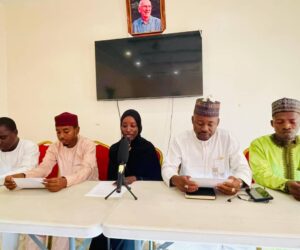

The dictionary defines genocide as “a deliberate and systematic killing or persecution of a large number of people from a particular national or ethnic group, with the aim of destroying that nation or group.” In Benue state, debates around the use of the term have resurfaced following Governor Hyacinth Alia’s recent comments that the state is not experiencing genocide—remarks that have sparked controversy among some groups.
Historically, communal clashes between the Jukun and several communities in Benue predate the administration of former Governor George Akume. These conflicts were often described as disputes over land—tense but largely internal and rooted in local competition. According to supporters of Governor Alia, these episodes differ significantly from more recent armed attacks attributed to external groups, particularly armed herders, whose violence has displaced communities, overtaken villages, and heightened religious and ethnic anxieties.
Governor Alia, a Catholic priest who incorporated the Cross into the state’s “Food Basket of the Nation” emblem to symbolise divine protection, has faced criticism from some who accuse him of downplaying the severity of attacks. His supporters, however, argue that the governor cannot be said to betray his people, given his clerical vows and his stated commitment to act with compassion and reverence for God.
They insist that when he says Benue is not experiencing genocide, he means that traditional inter-communal clashes, which have historically erupted among Benue’s own ethnic groups, do not meet the definition of an attempt to exterminate an entire people. According to them, Alia’s position does not negate the severity of current security challenges, which he continues to describe as grave and urgent.
Governor Alia maintains that his conscience and the oath he took upon assuming office guide his leadership. Supporters argue that many educated Nigerians, including intellectuals and clergy in Benue, understand his intentions but fail to communicate them clearly to younger generations who are directly affected by insecurity.
The governor has repeatedly appealed for stronger federal support, including state policing, a call he made long before recent attacks spread to parts of the South-west, prompting similar demands from governors in that zone. His supporters also believe that international engagement, such as planned discussions with representatives of the United States on insurgency and violent attacks, should be seen as efforts towards long-term solutions, not political controversies.
According to his political allies, Governor Alia’s actions reflect courage and transparency in confronting violence that has at times been politicised or understated. They say his approach distinguishes him as a leader whose popular election under the slogan “Yes Father” was seen by many as providential.
The worsening security situation across Nigeria continues to raise unanswered questions, from how bandits sustain themselves in forest enclaves, to the absence of security infrastructure deep in rural areas, to the long-term implications of prolonged displacement. Observers note that soldiers, once symbols of high discipline and public defence, now face daily risks on the frontlines, while their morale has been strained by years of expanded internal security duties.
Supporters argue that Governor Alia’s growing list of political rivals is a reflection of his rising influence. They reference the scriptures, particularly the book of Isaiah, to highlight their belief that opposition will not derail his mission. Meanwhile, they criticise the clergy who they believe focus more on material concerns than using their platform to clarify the governor’s stance.
The recent withdrawal of police personnel from VIP escorts, they argue, may help the political class better understand the insecurity faced by ordinary citizens. Ultimately, they believe that criticism of Governor Alia only reinforces his resolve and vindicates his leadership.







